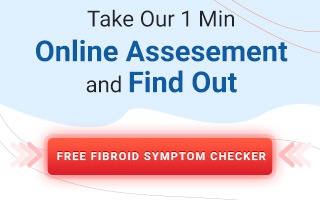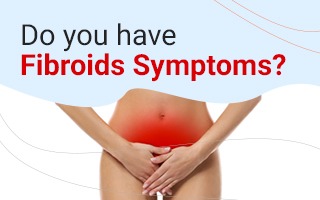Fibroids are benign tumours of the uterus (womb). They are not cancerous and so are very unlikely to be a threat to life. Fibroids are however very common affecting about half of all women at some stage in their lives. Though most women with fibroids have no symptoms and may not even know they have them, a minority suffer very distressing symptoms.
Fibroids are made up of muscle and are very vascular i.e. have a large supply of blood to them. No-one knows for sure what causes fibroids but they are certainly influenced by hormones and most likely to grow faster when oestrogen is highest in a woman’s middle life.They are rare in teenagers, most common in 30-50 year olds and shrink naturally after the menopause.


Symptoms

Some women with fibroids have mild or no symptoms, while in others, symptoms are severe and disruptive. Common symptoms include:
- Heavy or prolonged menstrual periods
- Abnormal bleeding between menstrual periods
- Pelvic pain (caused as the fibroid presses on pelvic organs)
- Frequent urination
- Low back pain
- Pain during intercourse
- An enlarged abdomen, which causes a constant feeling of fullness or pressure
Some women experience iron-deficiency anemia from heavy or prolonged menstrual periods, or abnormal.
If you have any of the above symptoms, we can help evaluate your condition and offer the appropriate treatment.
Fibroids with Embolization (UFE)
At Vascular Health Centers we use a procedure called Uterine Fibroid Embolization (UFE) to treat uterine fibroids. Fibroid embolization, is a minimally invasive procedure that blocks blood flow to uterine fibroids, shrinking or destroying the non-cancerous tumors that grow on the uterine walls.
- Effective alternative to surgery and hormonal treatment
- Completely noninvasive — no surgery and no blood loss
- Minimal hospital stay
- Quick return to normal activities
- Preserves the uterus, cervix and ovaries
- Significant improvement in quality of life
- Decrease in menstrual bleeding from symptomatic fibroids
- Decrease in urinary dysfunction, pelvic pain and/or pressure
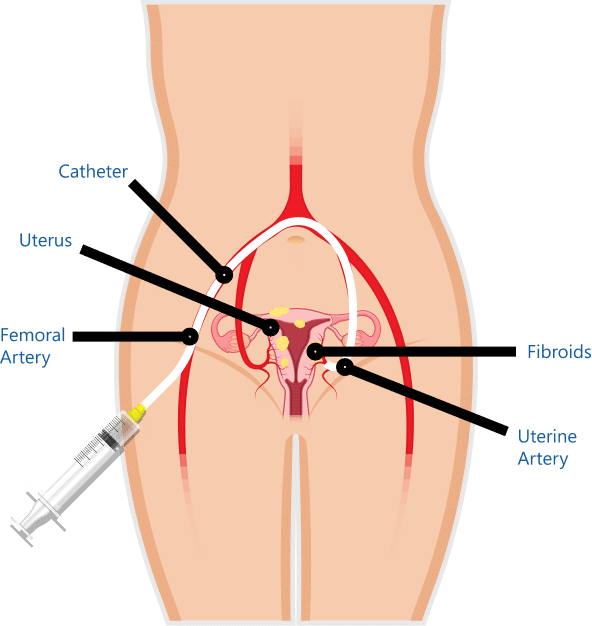
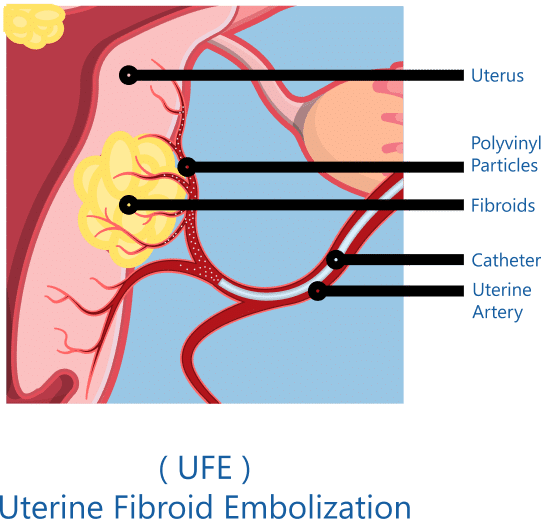
Come & Have a Free Physical Exam at One of Our 3 Vein Clinic
Locations in Oviedo, Winter Haven, Ocoee
During UFE, a medical specialist called an interventional radiologist cuts off the blood supply to fibroids,
so that they gradually shrink.
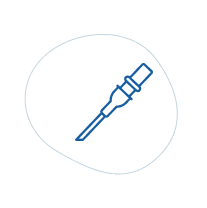
Doctors begin the procedure by inserting a tiny tube called a catheter into an artery at the top of the leg.

They guide the catheter into the uterine artery, map the arteries feeding the fibroids using an arteriogram (an x-ray in which a dye is injected into the arteries), and then inject microspheres (the size of grains of sand) through the catheter and into the fibroids to block their blood supply.
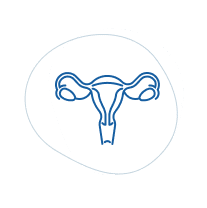
The fibroids begin to shrink, and many women experience rapid relief of their symptoms.
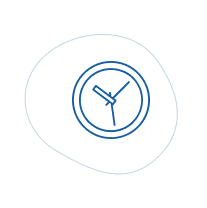
The procedure takes about an hour, and the recovery time is significantly less than that associated with traditional surgery.
With UFE, the uterus and ovaries are spared (unlike hysterectomy). Studies show that most women who undergo UFE experience significant or complete resolution of their symptoms over time, and their fibroids rarely return.
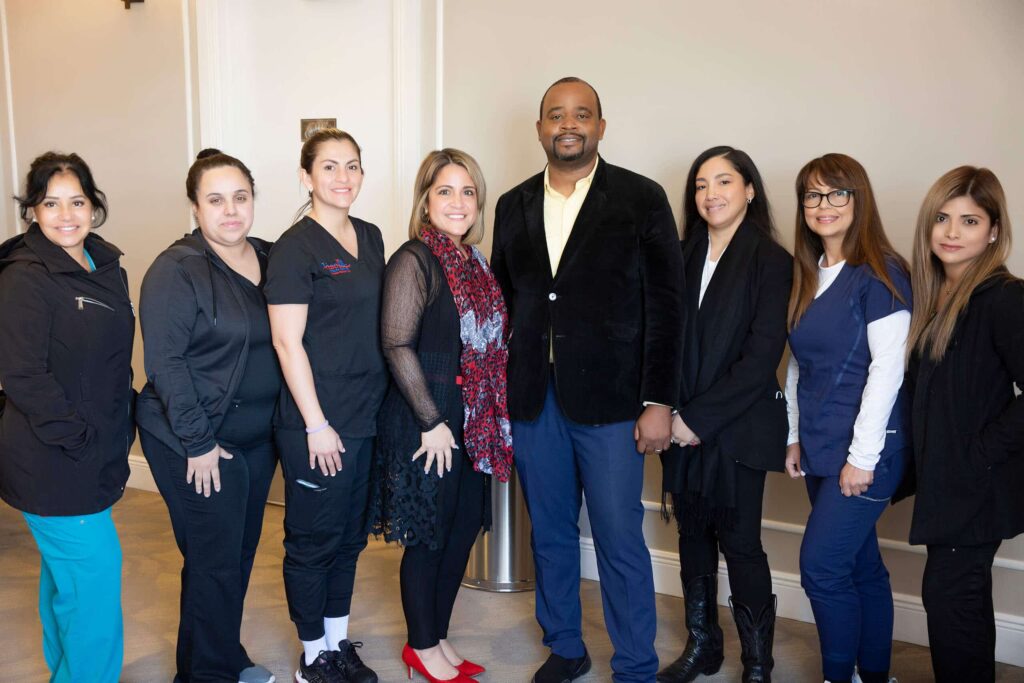
Why choose Us?

Holistic
Approach

Dedicated and
Caring Team

Affordable
Pricing Packages

State of the
Art Facility
Our full range of medical, laser & surgical options, include the latest diagnostic equipment for providing the highest possible vascular care.
Meet Dr. Obinna Nwobi
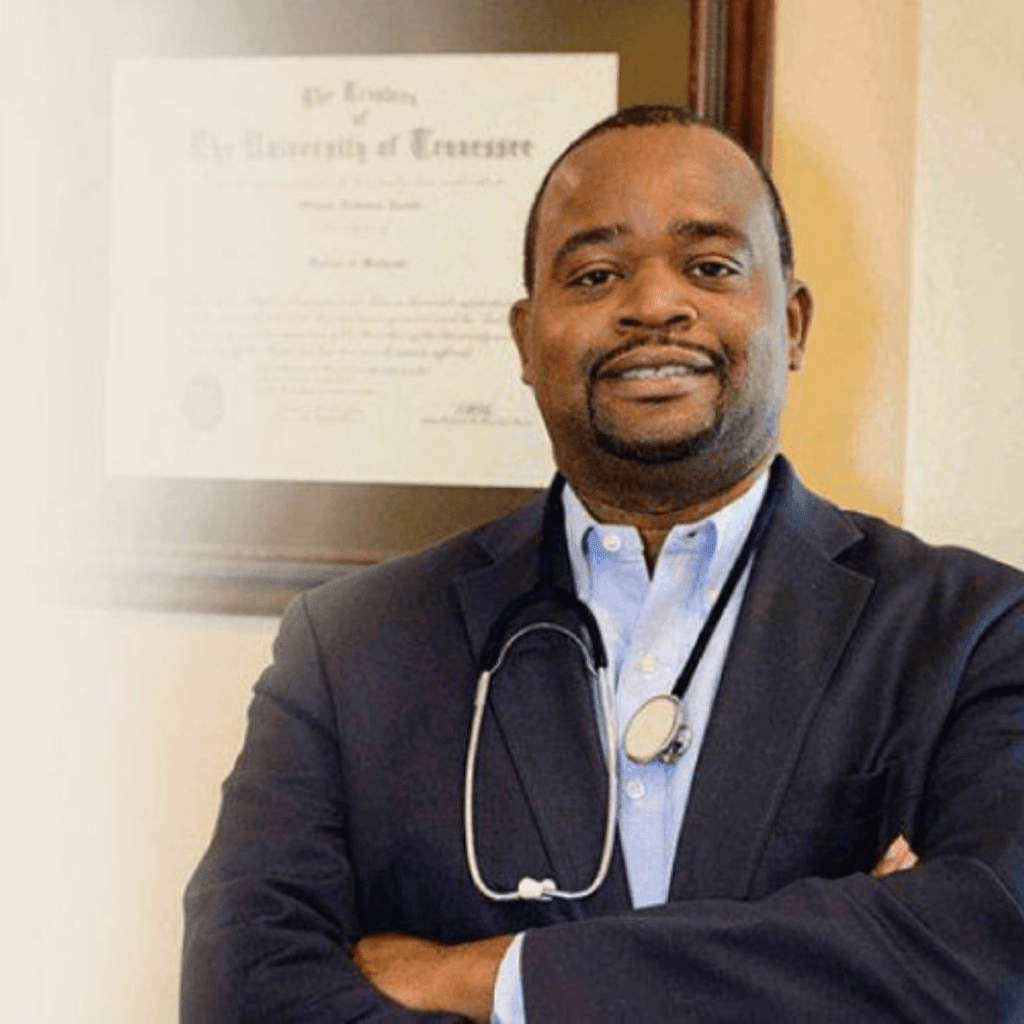
He then earned a master’s degree in public health from Johns Hopkins Bloomberg School of Public Health in Maryland, focusing on health care management and international health. He went on to earn his medical degree from the University of Tennessee College of Medicine. Dr. Nwobi completed his internship and residency in general surgery at the University of Medicine and Dentistry of New Jersey.
After completing his fellowship in vascular surgery at the Vascular Group PLLC and Albany Medical Center in New York, Dr. Nwobi chose to practice medicine in an underserved area of Florida.
Throughout his career, Dr. Nwobi has helped patients through the Indian Health Services system and Veterans A airs Hospital, while continuing to work at several large private and public hospitals.Dr. Nwobi is a Registered Physician in Vascular Interpretation, which provides him with specialized training in reading and interpreting all types of vascular ultrasounds. He is also board certified in vascular surgery. As a physician who’s passionate about serving the underserved, Dr. Nwobi dedicates as much time as possible to medical missions.
He has helped countless patients in Nigeria and provided medical care for patients who cannot a ord treatment. Because Dr. Nwobi is genuinely passionate about patient care and has extensive expertise in the most complex vascular conditions, he is trusted throughout Central Florida.

Dr. Obinna Nwobi
Fibroids are almost always benign (not cancerous). Rarely (less than one in 1,000), a cancerous fibroid will occur. This is called leiomyosarcoma.
Doctors think that these cancers do not arise from an already-existing fibroid. Having fibroids does not increase your risk of developing a cancerous fibroid. Having fibroids also does not increase your chances of getting other forms of cancer in the uterus.
Small- or medium-sized fibroids that don’t cause symptoms are unlikely to pose a significant risk to pregnancy. However, fibroids may grow larger during pregnancy because of higher hormone levels and increased blood flow to the uterus. Fibroid growth may cause discomfort, feelings of pressure or pain.
Additionally, large or multiple fibroids can increase the risk of:
- Cesarean section: The risk of needing a cesarean section (C-section) is six times greater for women with fibroids.
- Breech presentation: The baby is positioned with its legs down and head up rather than head down.
- Placental abruption: The placenta breaks away from the wall of the uterus before delivery. When this happens, the fetus may not receive oxygen.
- Preterm delivery: The baby is born too soon, before the 37th week of pregnancy.
Talk to your obstetrician if you have fibroids and become pregnant. All obstetricians (OB) have experience dealing with fibroids and pregnancy. Most women who have fibroids and become pregnant do not need to see an OB who deals with high-risk pregnancies.
Fibroids do not affect fertility for most women. However, about 10 percent of infertile women have fibroids.
Fibroids can interfere with conception by:
- Reducing the space inside the uterus or the uterus’ blood flow
- Altering the uterine lining
- Obstructing fallopian tubes
Certain types of fibroids pose the greatest risk:
- Submucosal fibroids inside the open space in the uterus (uterine cavity)
- Very large intramural fibroids
Although treatment often succeeds in addressing fibroids and providing relief, more fibroids may eventually grow. These fibroids can cause symptoms and require additional care.
The potential for fibroids to return happens with all treatments except hysterectomy. During a hysterectomy, surgeons remove the entire uterus.
Most fibroids get noticed during routine pelvic exams. Doctors then confirm a diagnosis with scans, usually ultrasound and MRI. Our team has the experience and skill to perform the scans the right way and to accurately interpret the results. We also have the expertise to distinguish fibroids from other conditions.
Researchers are still studying how diet may affect fibroids. But eating a lot of ham and red meat, such as beef, has been linked with a higher risk for fibroids.
Benefits of uterine fibroid embolization include:
- Effective alternative to surgery and hormonal treatment
- Completely noninvasive — no surgery and no blood loss
- Minimal hospital stay
- Quick return to normal activities
- Preserves the uterus, cervix and ovaries
- Significant improvement in quality of life:
- Decrease in menstrual bleeding from symptomatic fibroids
- Decrease in urinary dysfunction, pelvic pain and/or pressure
Oviedo
-
1410 West Broadway Suite 105
Oviedo, FL 32765 - 877-817-8346
Winter Haven
- 1121 1st Street S, Winter Haven, FL 33880
- 877-817-8346
Ocoee
- 572 Ocoee Commerce Pkw, Ocoee, FL 34761
- 877-817-8346



